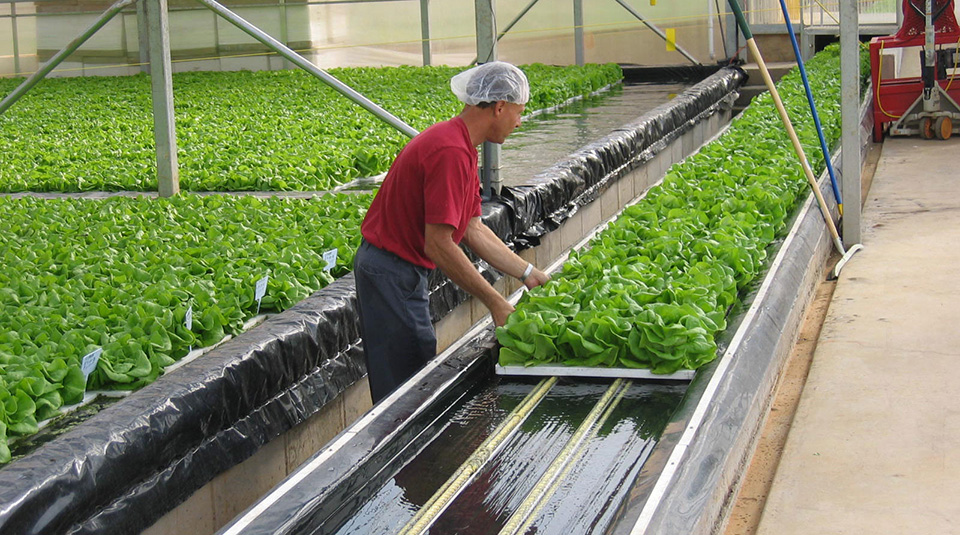
As part of an effort to assist subsistence farmers in Zimbabwe, an initiative to expose them to viable agro-business models and farming practices has for the past four years taken the villagers to China for training to learn how they can contribute to the country’s food security needs while at the same time derive economic value from their labor.
Subsistence farmers in Zimbabwe and Africa, in general, have been identified by such agencies as the Food and Agriculture Organization as pivotal in the difficult task of filling their granaries.
However, the World Economic Forum has noted that subsistence farmers often lack the requisite skills set that will not only help them produce enough against numerous environmental challenges but also how to turn their farming into thriving economic enterprises.
It is against that background that Remond Mauba, a Zimbabwean farmer based in Gwanda, a rural district in the south-west of the country, who was part of a group that went to China for training in 2017.
“We were taught farming methods that included hydroponics, intercropping and the importance of cash crops,” said Mauba.

Most farmers plant crops for their own consumption but the training seeks to encourage a shift whereby the farmers are encouraged to diversify.
But this requires resources.
Concerns
There are concerns about such development models adopted by international partners and their ability to address local needs.
Mauba, by his own admission, says three years after acquiring Chinese training, there has not been any follow-up from his hosts or local authorities to assist him with the practical application of his knowledge.
“Since the Chinese government gave me the opportunity to go and learn in their country, can they recommend to our government to consider funding our agriculture projects so as to address food security as well as sending us some experts,” Mauba said.
Local farmers face challenges that include a poor appreciation of climatic shifts and sustainable use of water, hence the training Mauba received in hydroponics – the growing of crops without the use of soil – is seen as a viable alternative for farmers who rely on rain-fed agriculture.

The Zimbabwean government has looked to China for the revival of the agriculture sector and this has seen the southern African country signing numerous bilateral agreements including the capacitation of local farmers through training.
The training of African farmers in China is underwritten by China’s Ministry of Commerce.
It appears fitting then that Zimbabwean farmers would be trained on hydroponics,
Described by the World Economic Forum as the “future of farming” because Zimbabwe, like many southern African countries, has faced innumerable challenges in the agriculture sector and is continuously seeking new solutions and interventions.
Local Knowledge Sharing
Upon his return from China, Mauba established the Remond Agricultural Research and Development Institute where he says he teaches rural farmers new farming techniques and the planting of what he calls “economic crops” and also horticulture.
“It was a useful course and upon my arrival from China I went to the local radio station in Zimbabwe to share my knowledge with listeners,” Mauba said.
“My participation in the China training has improved food security efforts in my country and this is evidenced by the invitations I have received countrywide to speak about lessons I got in China to prove my country’s food security. After giving my presentation on the radio, it prompted me to come up with a research institute called Remond Mauba Agricultural Research and Development Institute which is affiliated to the Gwanda State University and locals schools around with the blessing from the deputy minister of primary and secondary education,” he explained.
While Mauba is upbeat, he concedes more still needs to be done.
Challenges
Within the development practitioner paradigm, capacity building is expected to be ongoing especially in this instance after being equipped with knowledge from outside the country, but development experts are skeptical about the efficacy of such interventions.
“The Chinese models of social development in Africa as they relate to international relations are not conceptually different from what we have experienced from the west because they are transactional in nature. They are only separated by our historical relations in that the west colonized Africa and China did not,” says Tapiwa Gomo, a development researcher who has done work with the United Nations Office for the Coordination of Humanitarian Affairs.
“The villagers who were invited to China to learn new agriculture and farming methods whose implementation has not materialized falls within the same category where the center plays lip service to the periphery in exchange for investment or any other commercial opportunities,” Gomo explained.
An example is the intensity, financing, and skills required for potentially financially viable farming models such as hydroponics. As the WEF explains, the method requires the “manipulation and management of the growing environment, including the amount of water, the pH levels and the combination of specific nutrients plants can be encouraged to grow faster. Air and soil temperatures can also be carefully controlled, as can the prevalence of pests and diseases.”
But, of course, these methods are all highly technical and capital intensive.
Mauba has tried to raise funds for his institution by launching a Facebook appeal but these efforts have not been very successful as evidenced by discouraging responses to his post, raising questions about how overseas development training should be implemented back home.
“We talk of sustainable development where communities are part of crafting the solution to their challenges. So, the top-down strategy has long been discredited for obvious reasons. In the context of sustainable development, communities should no longer rely on the Chinese if properly empowered they should be able to carry on and even continue to pass on the skills to others,” said Gerald Mabweazara, a development studies researcher at the University of Cape Town, South Africa.
“Again yields should have improved or at least their quality of life. Was such an assessment done after their training if not why? The strategy is therefore flawed,” Mabweazara said.
Despite the challenges, Mauba says more knowledge sharing with Chinese experts will be of benefit for farmers like him.
“I think it can be prudent if the Chinese can add more courses as well as seminars and agriculture conferences which will help us implement our projects,” Mauba said.
Marko Phiri is a freelance journalist based in Bulawayo, Zimbabwe’s second-largest city.









